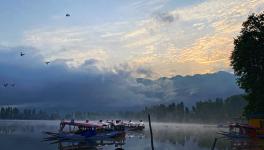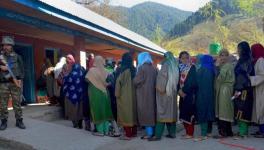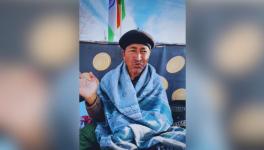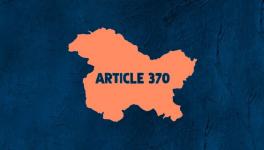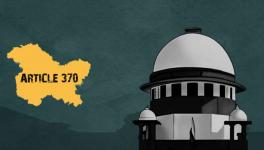A Revolt Simmers in Poonch, Where Children Grow up Under the Shadow of War
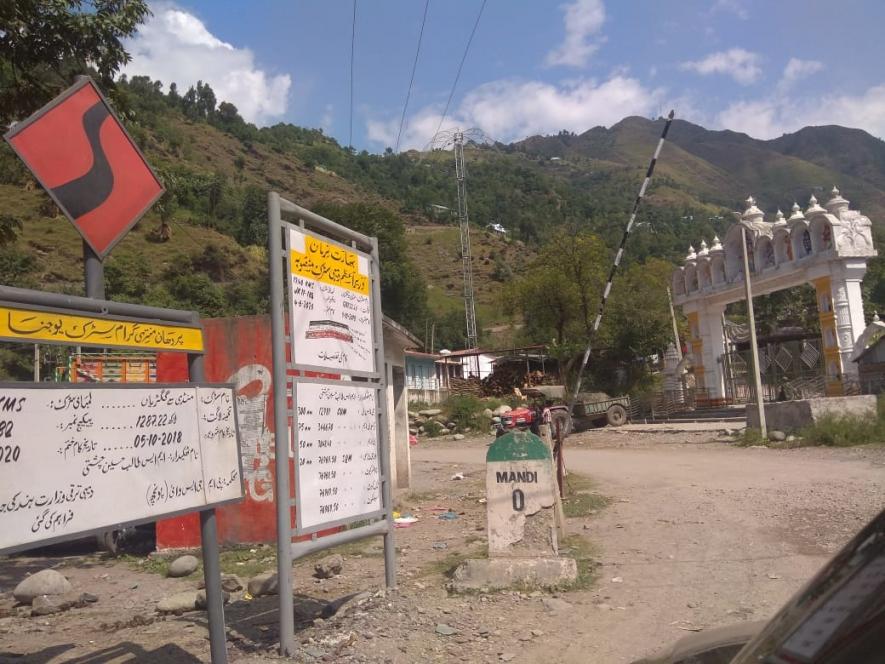
Poonch: The shops are open, and the roads are busy. The schools are functioning normally. People are busy with daily work. There are no restrictions and no shutdown is visible. On the surface, the situation appears fine, but beneath this veneer of normalcy lives a disgruntled population of Poonch, harbouring a deep grudge as if a revolt is seething.
A vast mountainous region, Poonch is located along the treacherous Pir Panjal range where villages are scattered widely along slopes as rivers and streams flow in deep ravines. A Muslim majority district with over 90% Muslim population, life in Poonch is not easy due to the difficult terrain. The earth is tough with limited scope for agriculture, people grow maize mostly and only a few patches are good for beans, apples and pears.
What makes life in Poonch most complicated is its proximity with the Line of Control (LoC), many villages on this side are always in the line of fire from Pakistani posts, perched atop the mountain range. The ceasefire violations along the LoC are a regular feature in these regions, manned by military posts on both sides.
More than 50 days have passed since Article 370 was abrogated in Jammu and Kashmir, ripping apart its state status and bifurcating it into two Union territories – Jammu & Kashmir and Ladakh. A massive clampdown was enforced across the erstwhile state, hundreds, including politicians, activists, lawyers and students have been arrested.
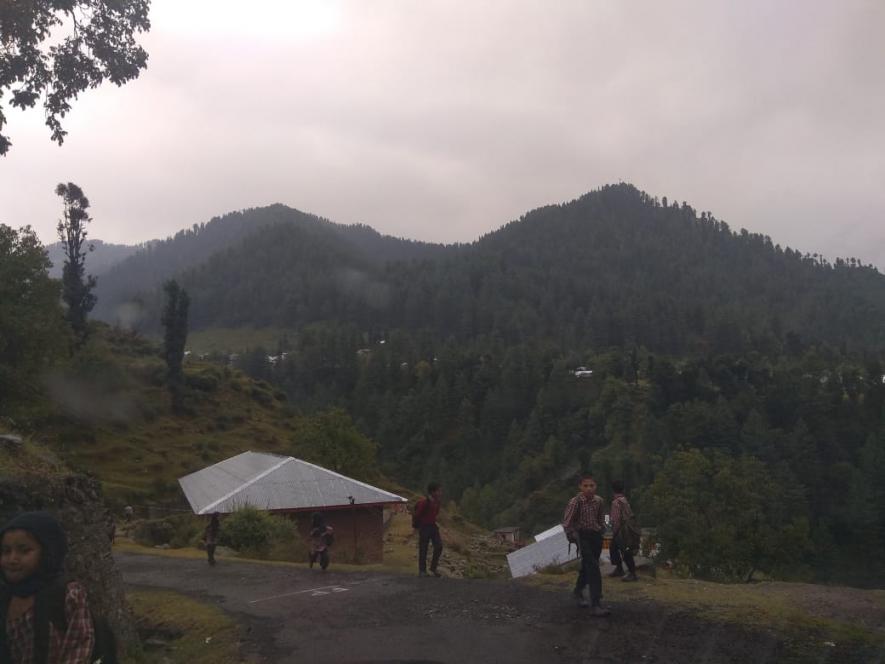
For people in Poonch, a crackdown of this scale has been imposed for the first time, locals say. The government placed Poonch under curfew for 10 days before lifting restrictions in the area, except in Tehsil Mandi, where it continued for a few more days.
Less than a month ago, 21-year-old Aftab was preparing for further studies following his graduation from Poonch degree college. A resident of Rajpora village in Mandi, around 21 km from Poonch town, he has lost all focus since his father Altaf Hussain was slapped with the Public Safety Act (PSA) earlier this month.
“I can’t say much. He hasn’t done anything to deserve jail,” says Aftab, adding “He didn’t do anything when he was young, what will he do now in old age”.
Altaf Hussain retired as a government schoolteacher earlier in March this year. He has four daughters and Aftab, who is the eldest. To sustain his family, Aftab also works as a salesman in a nearby medicine shop and avoids discussing politics because he aspires to be a journalist. He, however, shivers as he talks about his father’s detention.
Altaf Hussain is among nine persons arrested in Poonch and slapped with PSA. The police arrested five from Mandi area, two from Surankote, one from Poonch town and another one from Mendhar. According to police, the five persons from Mandi. including Altaf, have been booked for raising pro-freedom slogans, such as lHum kya chahate hain, Azadi, Hai haq hamara Azadi… Abrogation 370/35A humein Manzoor Nahi, Manzoor Nahi (We want freedom, freedom is our right…Abrogation of Article 370/35A is unacceptable).
Javaid Reshi, Mohd Farooq, Mohd Din, Mohd Akram and Shahid Hussain, among others, have also been named as associates of Altaf in instigating people. Aftab says, his father is lodged in Kot Balwal jail outside Poonch. A few locals have gone underground to evade arrests.
Shameem Ganie, a political activist with People’s Democratic Party (PDP), says despite insurgency in Kashmir, people in Poonch always waved and stood by the Indian flag on Republic day and Independence Day. “This time on August 15 no one from Mandi participated in the celebrations,” he says.
After the government ended restrictions, Mandi locals began observing a shutdown, but the police and local administration carried out arrests in the area, forcing locals to open the market. “But our hearts have already revolted,” locals say.
Shameem says the recent crisis has hit his belief in the politics he espoused for years. He says he never let the ‘shadowy policies of Pakistan’ take root either in his heart or in his land. “Now I think the belief of our ancestors was wrong, as the belief of Mohammad Ali Jinnah, the two-nation theory, appears right,” he adds.
Like Shameem, former Poonch MLA, Shah Mohammad Tantray, is also hurt. “I was and will remain an Indian but unlike the past, I am not a proud Indian anymore,” says the PDP leader.
Tantray is currently under house arrest and his movement has been restricted since August 5, like scores of other politicians in the Valley. For Tantray, the only response from his side and his people, is to be patient. “There is darkness and hopelessness due to Ananiyat, Lakanooniyat and Firouniyat (Betrayal, Lawlessness and Tyranny),” Tantray says. He says he has been put under detention, as he is a vocal critic of Prime Minister Narendra Modi’s policies.
Both Shameem and Tantray believe the decision to revoke the special status of J&K and downgrade its status into Union territories has undone years of work carried out by local pro-India politicians in Poonch. “We are back to square one just like in the 1990s, when armed insurgency swept the entire region into violence and revolt,” Shameem says.
The fear of a possible escalation in Kashmir insurgency is also rooted in Poonch. Its proximity with the LoC (Line of Control) and vast swathes of uninhabited territory in Poonch region, acts as a favourable route for infiltration bids. Many of these routes lead to the upper reaches of Baramulla, Budgam and Shopian districts in Srinagar.
But, for many locals of Poonch, more than the abrogation of Article 370, it is the removal of Article 35-A and downgrading of J&K to a Union territory as hurt them most.
Ghulam Qadir, a resident of Rajpora, believes no one will come and buy their land but educating children for jobs will yield them even less than what the land of Poonch yields in crops. “No one is happy. There were already less opportunities for our kids, now there will be none,” he says. In the last elections, 60-year-old Ghulam Qadir says he voted on a party’s promise that special status will remain unharmed.
Ghulam Qadir has three sons, one of them, a post-graduate, works as a help in Saudi Arabia. His other son is a daily wager in the local panchayat. “My youngest son, looking at the plight of his elder brothers, decided against studies and went to Shimla (Himachal Pradesh) to work as a labour. Now more will be like my youngest son. But there is nothing we can do, as it is a border area,” he adds.
On this side of the LoC, a gun point is perched in the remote Gagriya village and right above its range is Gagriya high school, around 48 km from the town. It is the last high school in the area where 232 students are enrolled, including 110 girls. The fence along the LoC is clearly visible from the school’s courtyard.
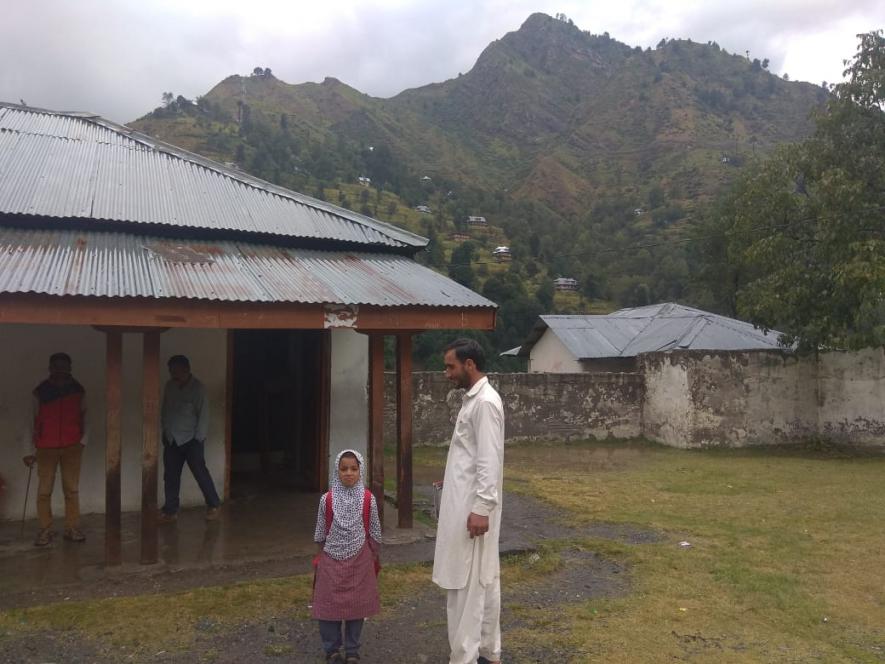
“The shelling can happen anytime and there is a continuous threat, but locals are enthusiastic about educating their children,” Vikas Luthra, who teaches in the school, told NewsClick.
Khursheed Ahmad, a student of Class 9, has to walk uphill for 45 minutes to reach the school. An aspiring engineer, his father used to work in a Gulf country but left his job two years ago. Khursheed’s nomadic tribe migrates from season to season in different areas of the region but, he never misses school.
“My parents want me to become an engineer, but my father insists on going to Saudi Arabia for work like him,” Khursheed says.
His teacher Mohammad Aslam says it is difficult for people living in cities and towns to understand how difficult it is to get educated in a border area like Gagriya. “This place is under snow for months and the summers are not very kind and then there is a life threat. How will a student of Gagriya compete with someone educated in Srinagar or Delhi,” he points-out, referring to the removal of Article 35A as ‘injustice’ to children like Khursheed.
People living in Gagriya mostly speak a Kashmiri dialect like many others in Poonch region where nomadic tribes also speak Pahari and Gojri. People in Poonch identify themselves as Kashmiris. The travel time to Gagriya from Srinagar is a nine-hour rigorous drive from Shopian-Mughal Road, but on the western side, it is a five-hour walk from the Valley’s Baramulla district, according to locals, but there is no road connectivity, which makes villages like Gagriya, and Saujian in the vicinity, the remotest areas in the region.
While mobile phone networks in J&K started operations almost 15 years ago, residents of Gagriya until a year ago relied on wireless landline services only. Within a year, villagers in this area witnessed the first mobile network shutdown, a regular feature for people living in the rest of the state.
“We now have one private mobile network in this area and this reminded us that we are not living too far from Kashmir Valley even as we may do so physically,” a local says.
The villager say they have always been sympathetic to Kashmiris in the valley and look up to them for representation.
Choudhary Abdul Ghani, a Congressman from Poonch, says for the people in Poonch, the social and political realities vary from those living away from it. “People living in border areas put up a fight everyday to survive. There are hundreds of issues, but there is a deep sense of loss among people in Poonch, irrespective of religion, creed or tribe,” he says.
Before Independence, according to historian Christopher Snedden, due to less agricultural practices and tough terrain, about 60,000 persons from Poonch, due to their proximity with military grounds in Punjab, fought in World War II in the British Army. A rebellion led by ex-army servicemen called ‘Poonch Rebellion’ ensued in year 1947, which became a precursor to the first war fought by India and Pakistan over the region. The erstwhile Poonch Jagir is now divided by the LoC, with relatives and families living on either side of the divide.
Shameem, the influential PDP activist, says even as there is a worry in the entire world about the possibility of a war in the sub-continent, the worries in Poonch have not increased. “The wars never left us,” he says.
Despite massive security presence and crackdown in the area, locals from the border region carried out small demonstrations in several places, including in Gagriya, where young men chanted pro-freedom slogans and slogans against the ruling Bharatiya Janata Party at the Centre, the party they think is “responsible for creating a new front in an old war.”
Get the latest reports & analysis with people's perspective on Protests, movements & deep analytical videos, discussions of the current affairs in your Telegram app. Subscribe to NewsClick's Telegram channel & get Real-Time updates on stories, as they get published on our website.









